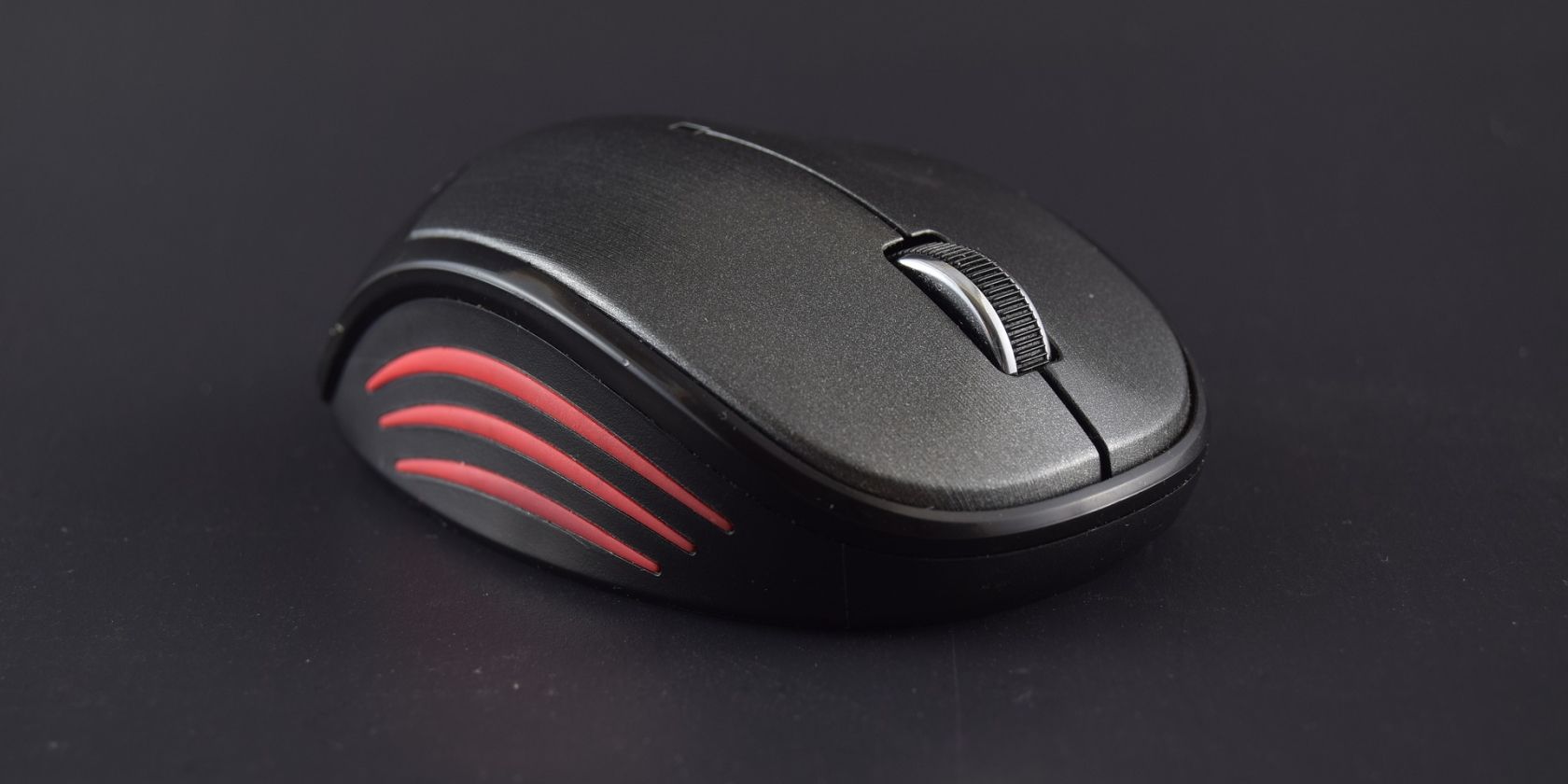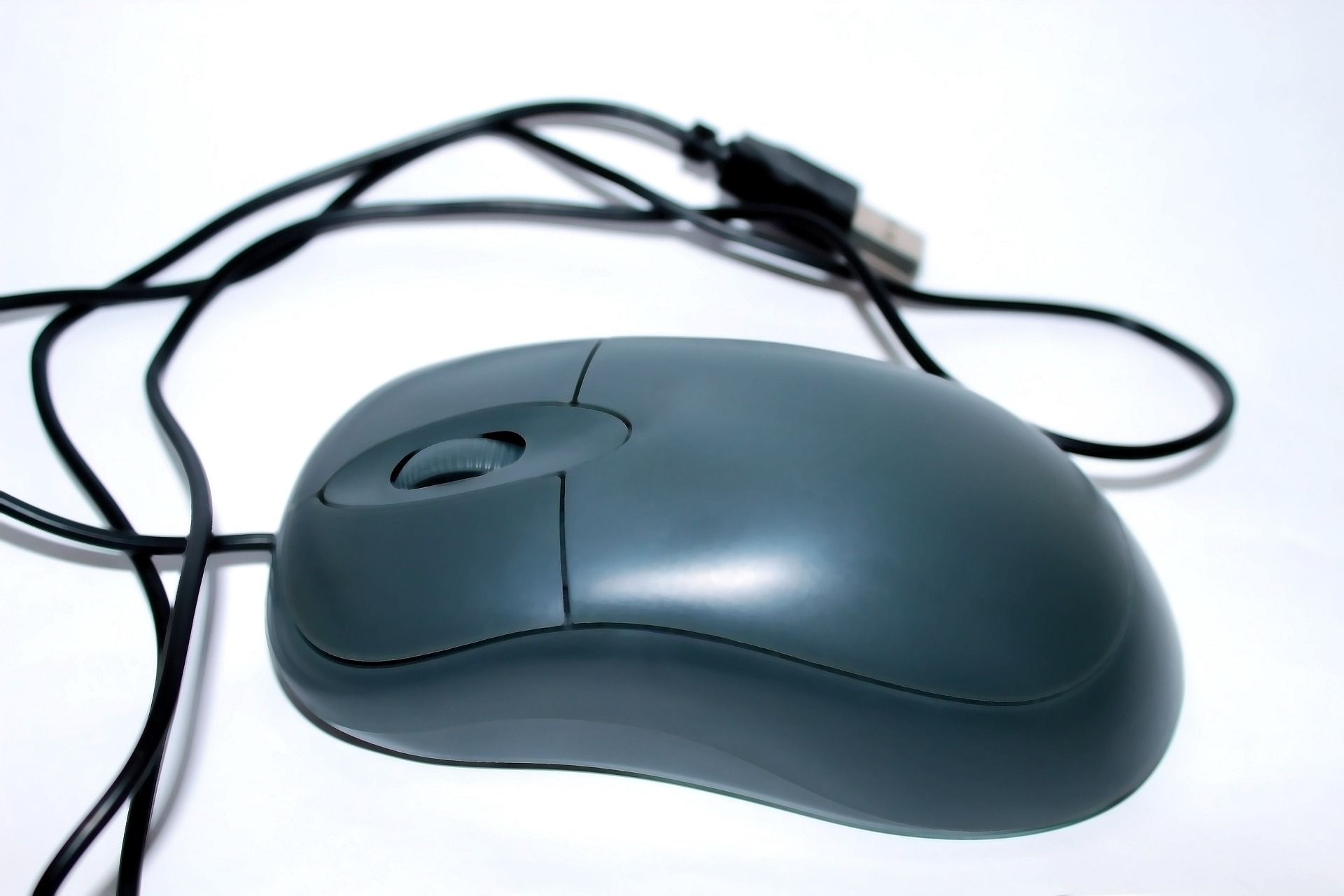Wired and wireless mice can both be a perfect choice, depending on the particular purpose they are going to serve. Each comes with its strengths and advantages, limiting or extending flexibility, speed, and freedom of movement.
It can become difficult to choose between a quickly-responding wired mouse and an ultra-portable fancy wireless one, especially with so many fancy offers on both sides. So, let's find out how to prioritize your needs by comparing wired vs. wireless mice.
How a Wired Mouse Works
The classic basic wired mouse is the easiest way to control the user interface on a laptop or computer. It always uses a cable to connect to your device, hence the name.
An obvious advantage of a wired mouse is that it doesn't use any batteries but draws power from the device instead. In general, no special drive is required for a wired mouse to work; you just plug it in, and it's good to go in a matter of seconds.
How a Wireless Mouse Works
As indicated by its name, a wireless mouse doesn't require a wired connection to work. It looks and works very similarly to a wired mouse but doesn't use any cable to connect to the host device. Instead, it uses wireless technology—typically, either Bluetooth or a proprietary protocol similar to Wi-Fi.
As a result, it's easier to carry while traveling and allows the control of the interface without requiring proximity to the device or limiting movement by the length of a wire.
A mouse with a custom wireless protocol always needs a proprietary connector to work. In contrast, Bluetooth-based models can usually connect to any Bluetooth receiver, including your laptop's built-in one.
Unlike wired mice that get power from the host device, wireless mice are powered either by rechargeable built-in lithium-ion batteries or AA or AAA batteries. In addition, they may include a charging cable that temporarily turns the mouse into a wired one.
The 4 Main Differences Between Wired and Wireless Mice
There are a few major differences between wired and wireless mice, which can become absolute game-changers in particular situations. In gaming, for example, response time is a crucial aspect.
Similarly, there are particular aspects essential for traveling. Power consumption is one of them. Below are the main differences between wired and wireless mice and how they will affect your overall experience:
1. Speed
Because it transmits information via a radio protocol, a wireless mouse is usually slower than a wired one, which transmits information significantly faster via a wire. You usually won't notice this during regular use, but it can become painfully apparent during gaming, where even the slightest lag matters.
Most modern gaming wireless mice utilize advanced technology that results in a practically lag-free experience.
2. Freedom of Movement
The long and easily tangled USB cable on a wired mouse is clearly less convenient for traveling. In this aspect, a wireless mouse is more portable and travel-friendly while also offering more freedom of movement and does not limit the work surface to the length of its cable.
3. Power Source
Power is a game-changer, especially in the context of travel. When using a wireless mouse, keep in mind that it uses battery power, requiring charging or new batteries to work. With wireless mice that use power from the host device, you don't have to worry about this.
4. Compatibility
Last but not least, there's a major compatibility difference between a wired and a wireless mouse. A wired mouse always requires a USB port to work. On the other hand, a Bluetooth mouse is compatible with any device that has a built-in Bluetooth receiver.
Using a Wired vs. Wireless Mouse: Comparing the Pros and Cons
With all that in mind, here are the main pros and cons of using a wired vs. wireless mouse:
Wired Mouse
The main benefit of wired mice is their faster and more precise response, and the fact that they don't need to be charged. Wired mice tend to be cheaper in general as well. On the other hand, you always have to dedicate a USB port to your wired mouse, and it uses a cable that limits movement and may get tangled if not carefully handled.
Wireless Mouse
A wireless mouse's main weakness is functionality and speed, whereas its strengths are its compact and comfortable design. The main disadvantages are the slower response time and possible lag in cheaper models, and the need to recharge or replace their batteries regularly.
A wireless mouse is usually more expensive too, and Bluetooth models are only compatible with devices that have Bluetooth receivers. On the other hand, you can enjoy more freedom of movement without any cables, making it great for travel.
Of course, the priority of these aspects can change according to your situation and needs.
While using batteries or charging your wireless mouse may be less practical than just plugging it into the host device, this becomes less important when you travel and when the advantage of portability, comfort, ergonomic form, and movement freedom is essential. Again, knowing your priorities can help you decide on the ideal model faster.
Wired vs. Wireless Mouse for Gaming: Are Wireless Mice Good for Gaming?
Wireless mice used to be avoided by gamers due to the lag associated with lower-end models. Most gamers prefer the precision and speed ensured by wired mice.
However, good wireless mice, which are usually more expensive, may have just as low latency as wired mice, to the point where the difference is impossible to register by human senses.
What's Better: Wired or Wireless Mouse?
As we mentioned above, the final decision will always depend on your priorities. For example, if you travel or use your laptop every day, using a wireless mouse will be more convenient, without cables to tangle or look messy and with more freedom of movement on a wider surface.
If you're a gamer, you may be more interested in the precision provided by a wired mouse. Furthermore, if you're looking for an investment as cheap as possible, a wired mouse is both the short-term and long-term solution. It costs less in the first place, and you don't have to worry about any additional expenses for batteries either.
In the end, it's all about personal preference and what proves to be more efficient for you. While wired mice ensure performance and efficiency, wireless mice are also a great choice for ergonomic design and convenience.
However, both use highly developed technologies, and you shouldn't discard either option before trying it. Instead, test each type of mouse and discover their strengths and weaknesses before making a choice.


